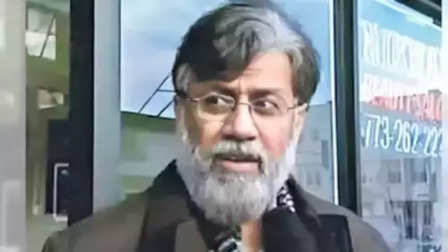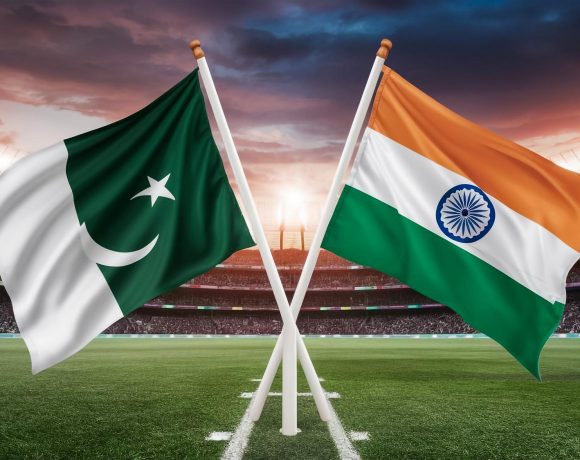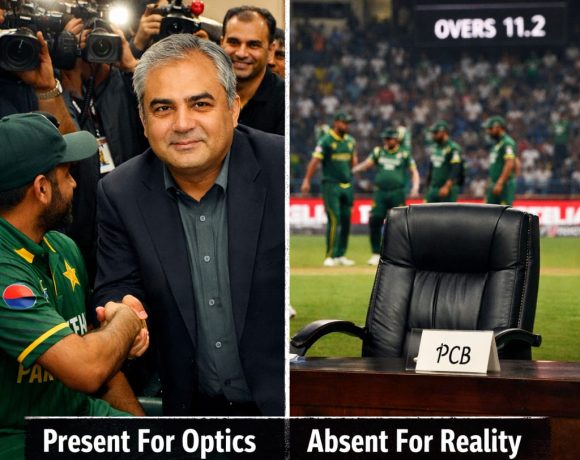
The Politics of Pity: How Congress and Its Cronies Trivialized 26/11 Justice
In a just world, the extradition of Tahawwur Rana to India would have been a moment of solemn vindication. A dark chapter that began on the blood-soaked streets of Mumbai in November 2008, when 166 innocent lives were snuffed out by Pakistani-trained terrorists, could finally inch toward some semblance of justice. The families who have waited for over 15 years—some aging, some gone, some still haunted—would have perhaps felt that their country still remembers, still fights for them.
Instead, what they got was a disgraceful parade of political clowns clawing for relevance.
Within hours of the news breaking, leaders from the Congress party rushed to social media—not to express relief, or solidarity with the victims’ families—but to stake claim to credit. Former Home Minister P. Chidambaram’s statement practically read like a child shouting, “I did it first!” His declaration that this was all due to the groundwork laid by the UPA was not just tone-deaf—it was pathetic. National security is not a baton to be passed in a political relay race. It is a collective cause, and at such grave moments, the only thing more important than bringing terrorists to justice is standing united in that mission. But for the Congress, unity takes a backseat when PR optics are on the line.
Then came Prithviraj Chavan, with his unsolicited lecture on judicial ethics, warning India not to become a “kangaroo court.” This, coming from a former Chief Minister of Maharashtra—a state that bled during 26/11. What exactly was Chavan trying to suggest? That India can’t be trusted to try a terrorist without Western approval? That our courts need international supervision to maintain integrity? His timing and tone reeked of misplaced moral superiority, and frankly, an insulting lack of faith in the very system he once governed.
But the gold medal in absurdity must go to Udit Raj, who scoffed at the extradition by saying, “This seems like a game to me.” A game? 166 people died. Police officers were shot point-blank. Civilians were burned alive in the Taj. Families were torn apart. And Mr. Raj thinks it’s all some elaborate game. If political illiteracy were a crime, he’d be serving a life sentence.
Not to be left behind in the festival of idiocy, Sanjay Raut of Shiv Sena (UBT) added his own sick twist by alleging that Rana would only be hanged during Bihar elections to help BJP’s vote bank. For someone who claims to represent Mumbai, Raut seems oddly eager to reduce one of the darkest days in the city’s history to a campaign gimmick. His remark wasn’t just politically repulsive—it was morally bankrupt. To suggest that the lives lost and the justice sought are pawns on a poll chessboard is to spit on the memory of the victims and the struggle of their loved ones.
These are not just careless remarks. They are a betrayal of public decency, of basic national conscience, and of any shred of empathy owed to the victims of 26/11. While our investigating agencies and diplomats worked tirelessly across years and continents to bring Tahawwur Rana to Indian soil, our elected representatives were busy figuring out how to hijack the moment for press bytes.
And let us not forget—Rana is not just a name. He is an accused facilitator in one of the most horrific terror attacks in modern history. He allegedly helped David Headley gain a business cover to surveil Mumbai’s key targets, leading to the meticulous slaughter that followed. The blood on the floors of CST, the haunting silence in the corridors of the Taj, the screams that rang through Nariman House—they all trace back to the logistical chain he helped sustain.
This is the man who is now in India’s custody, ready to face prosecution. This is the moment victims’ families hoped for. A moment to finally look the facilitators in the eye and ask why. And at this moment, our politicians chose to dance on their grief.
This isn’t just shameful. It’s appalling to the core. Every time a politician trivializes this moment, he reopens the wounds of those who still wait for justice. Every time they squabble over credit, they forget the silence of the widows, the orphaned children, and the bullet-ridden uniforms of our martyrs.
Politicians like Chavan, Udit Raj, and Sanjay Raut should be named, shamed, and remembered for this disgrace. If they had an ounce of integrity, they would issue apologies and resign from any moral platform they think they occupy. But until that fantasy plays out, the people must remember: some leaders seek justice, others seek microphones.
India deserved solemnity. The victims deserved closure. What we got instead was the politics of pity—and the pity was all ours.


















